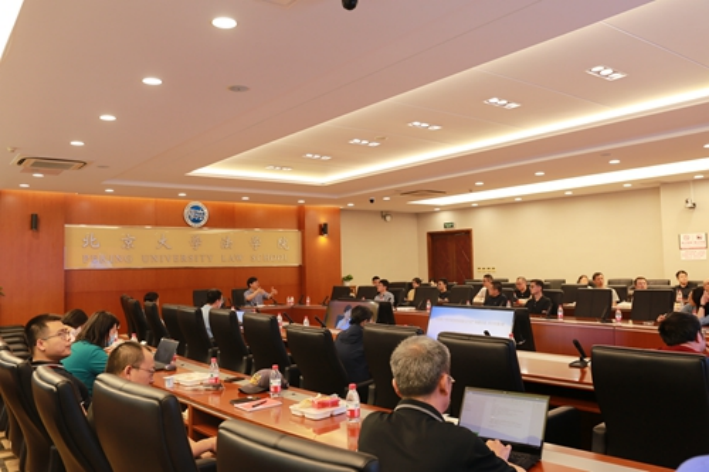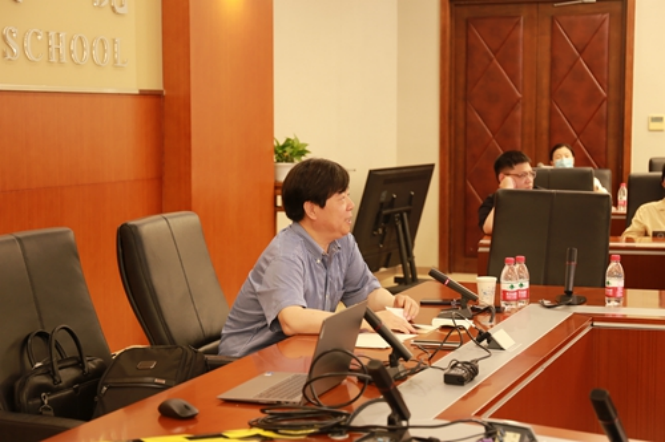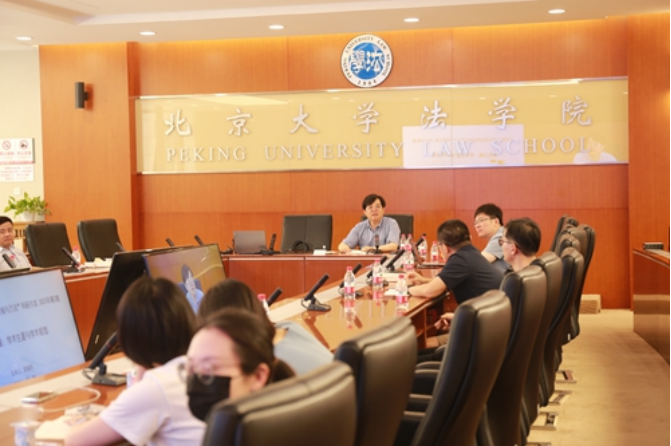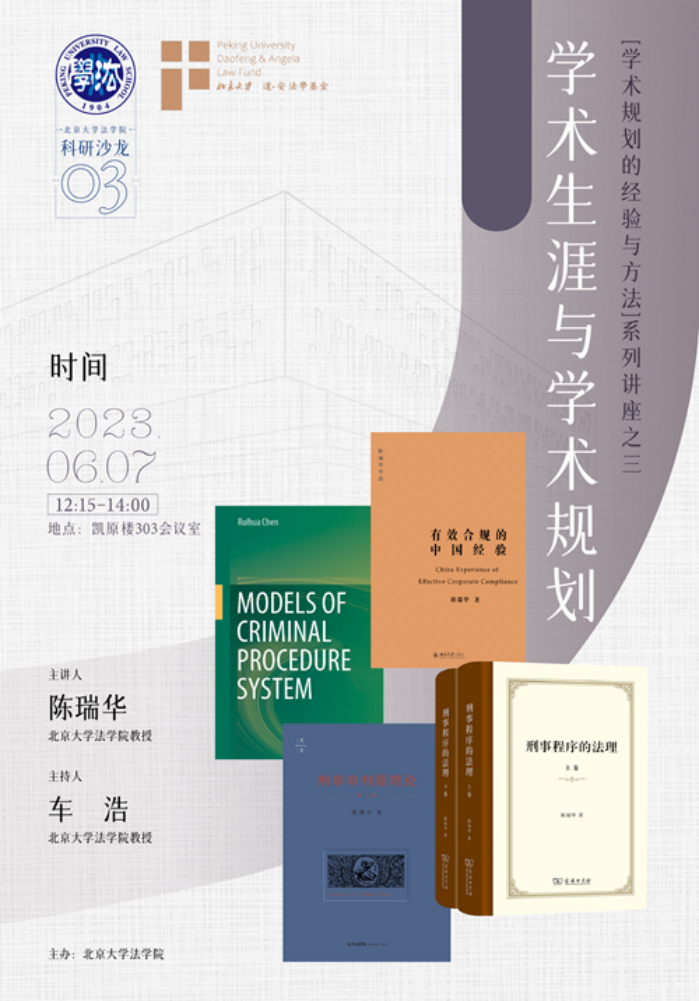The third session of the "Experience and Methods of Academic Planning " series salon at Peking University Law School, Prof. Chen Ruihua lectures on "Academic Career and Academic Planning"
Date:2023-12-28
On June 7th, the third session of the "Experience and Methods of Academic Planning" series salon was successfully held in Conference Room B102 of (Leo) Koguan Building, with the theme of "Academic Career and Academic Planning". This salon is hosted by Prof. Chen Ruihua, the Director of the Academic Committee of Peking University Law School, and Prof. Che Hao. Nearly 40 college teachers participated in the salon. This event received support from the Dao An Law Foundation of Peking University.

Prof. Chen Ruihua started with his own experience and reviewed his academic career, from the theory of procedural justice, judicial system, procedural sanctions theory, evidence system, defense issues, and consultative judicial system, to corporate compliance and misdemeanor governance issues. He explained the importance of topic oriented and systematic thinking and research on relevant topics. He stated that academic research naturally needs to be driven by interest, but there must also be a basic academic plan. After determining the topic, research can be conducted around it for a period of time, and ultimately a series of related papers can be published before publishing a monograph to match the output of academic achievements with the investment of academic expertise. He suggested that young scholars should have both an international perspective and representative works that have made theoretical contributions.

Subsequently, Professor Chen Ruihua proposed five suggestions to young scholars on the topic of academic planning. Firstly, pursue systematic thinking. Young scholars need to have at least a minimum level of planning and focus on studying a certain topic for a period of time in order to form a closed loop monograph. Secondly, expand breadth and depth. Don't stick to overly technical topics, actively absorb the nutrients of other disciplines, and engage in dialogue with different disciplines. Thirdly, adopt an interdisciplinary perspective. The circle of researchers in a single discipline is often relatively fixed, and they should appropriately step out of their comfort zone, research new fields, and be exposed to new ideas. Fourthly, use diverse research methods. New research approaches often lead to groundbreaking achievements. Fifth, balance the relationship between academic interest and external evaluation. Interest oriented, taking into account evaluation criteria.

Professor Chen Ruihua's sharing content was substantial, with a sincere and humorous style, which sparked resonance and reflection among the attending teachers. During the free discussion stage, the attending teachers actively exchanged ideas and asked questions, marking a successful conclusion to the third session of the "Experience and Methods of Academic Planning" series of salons.




